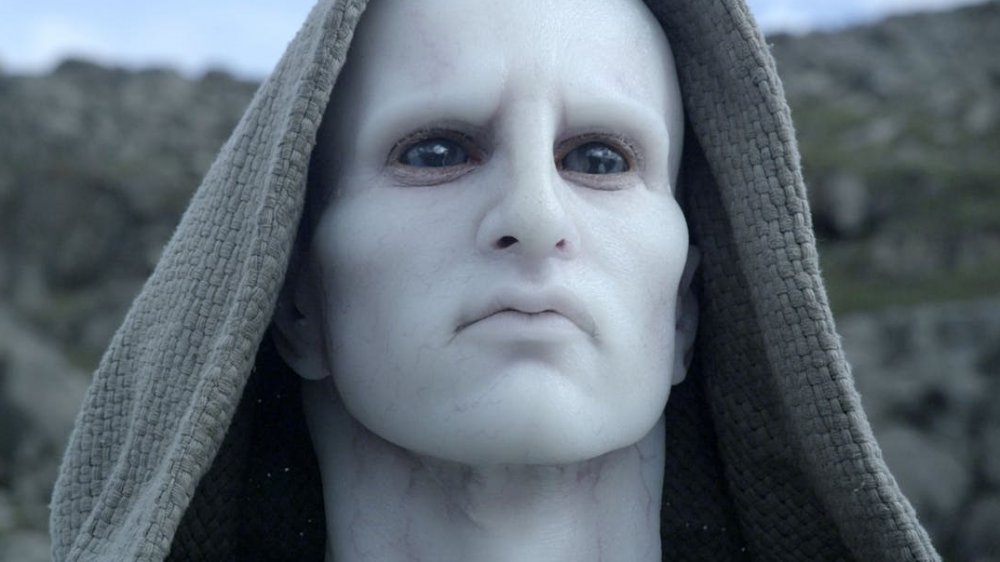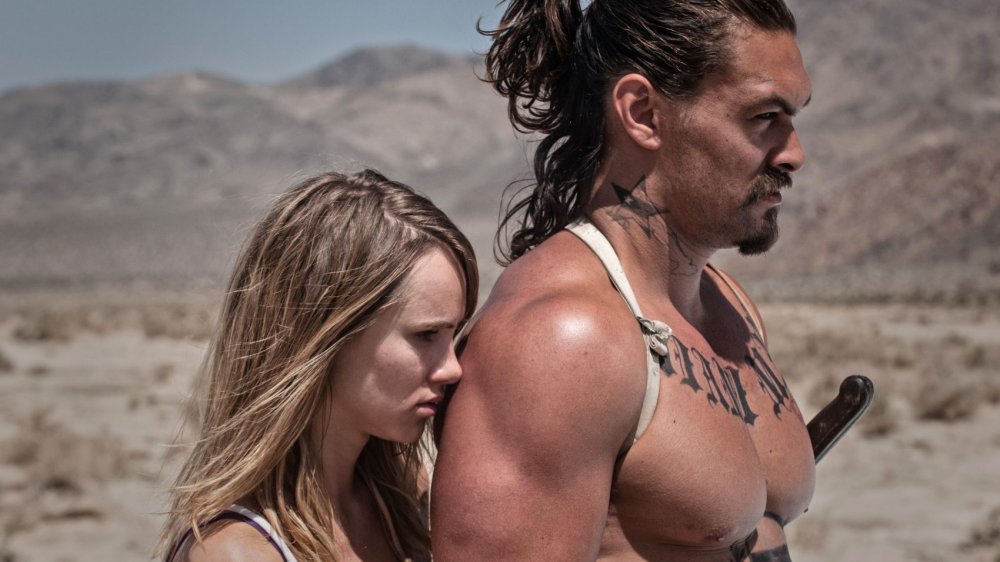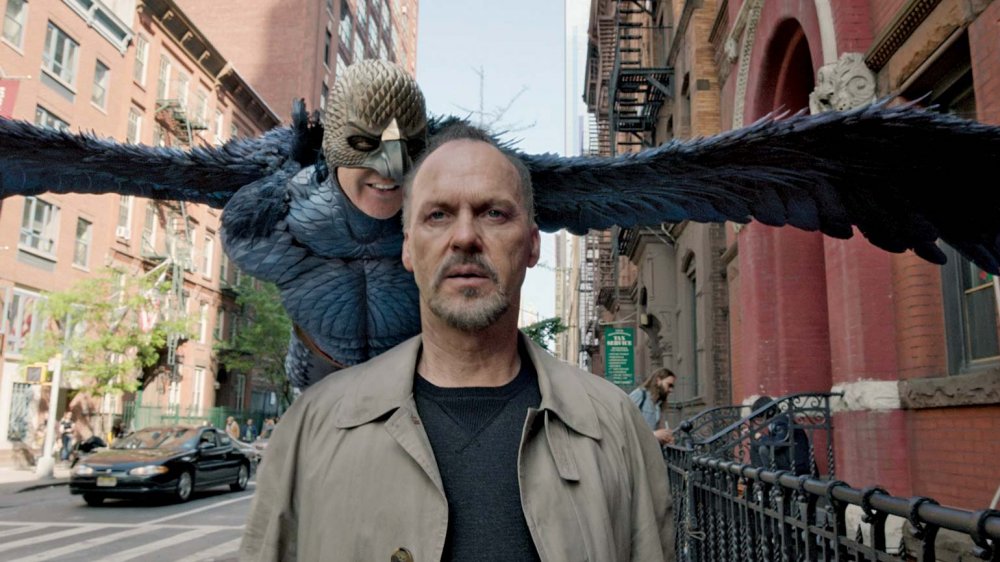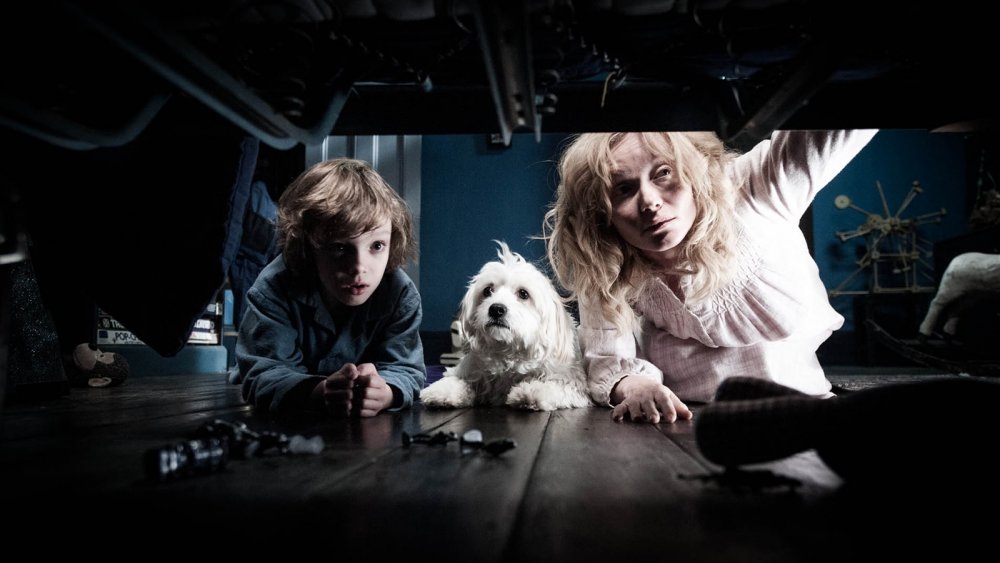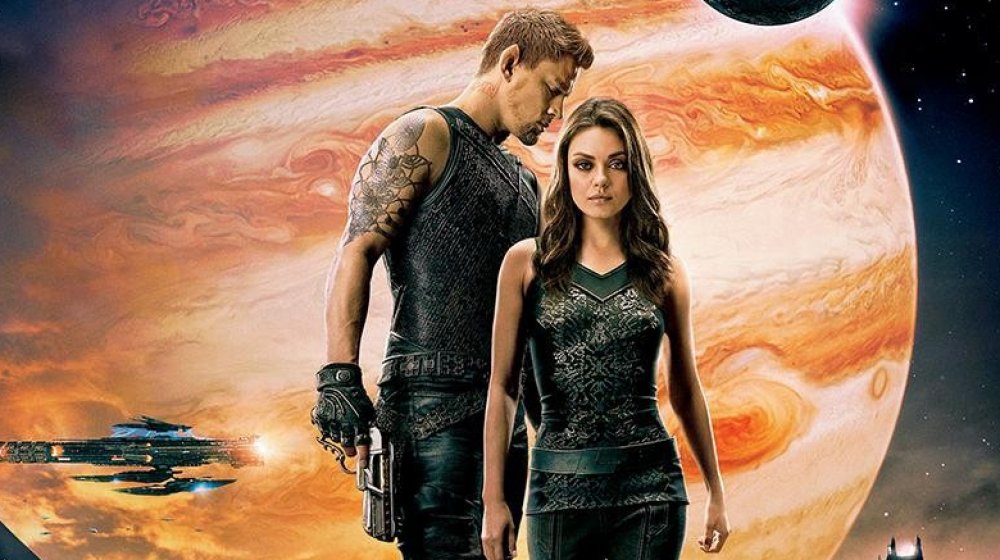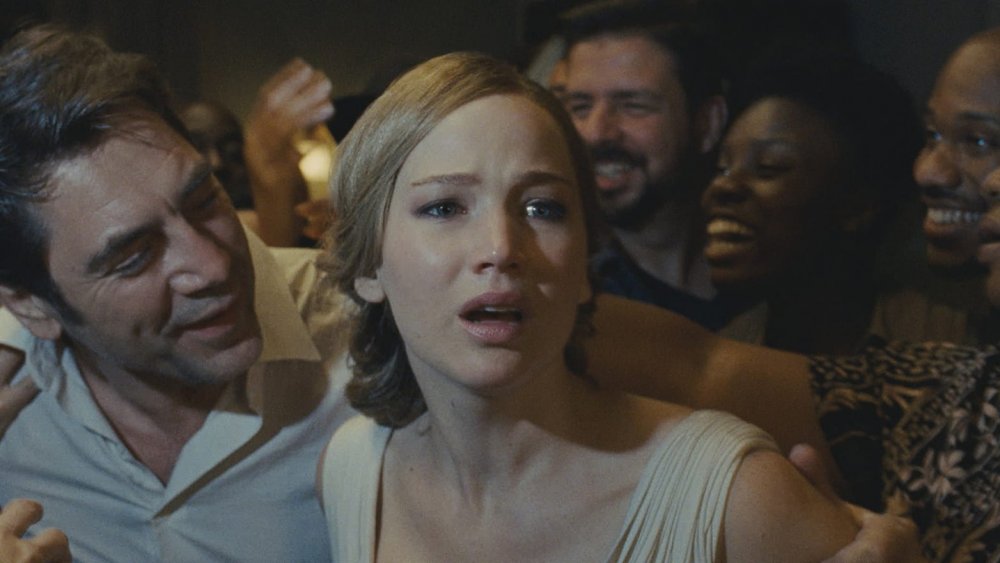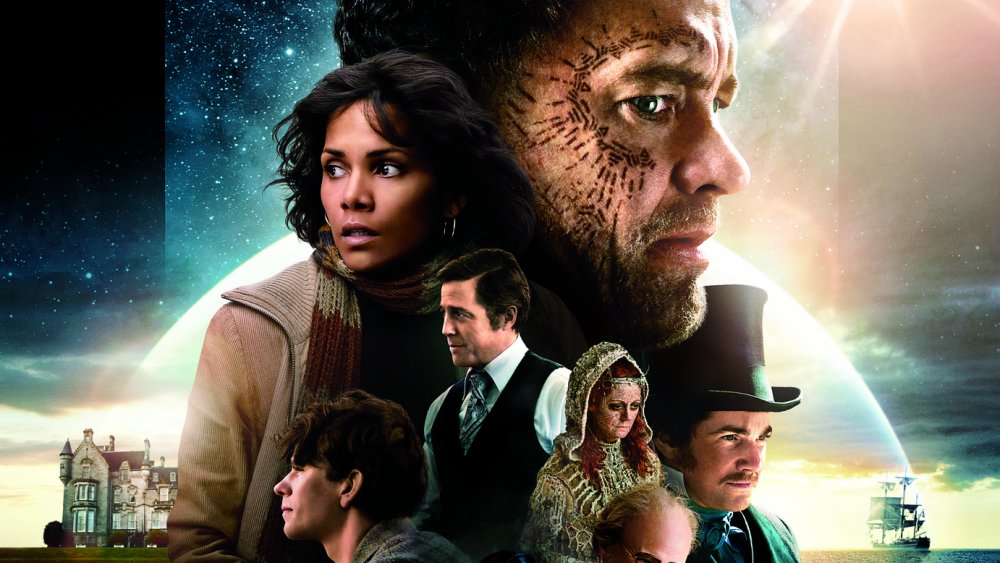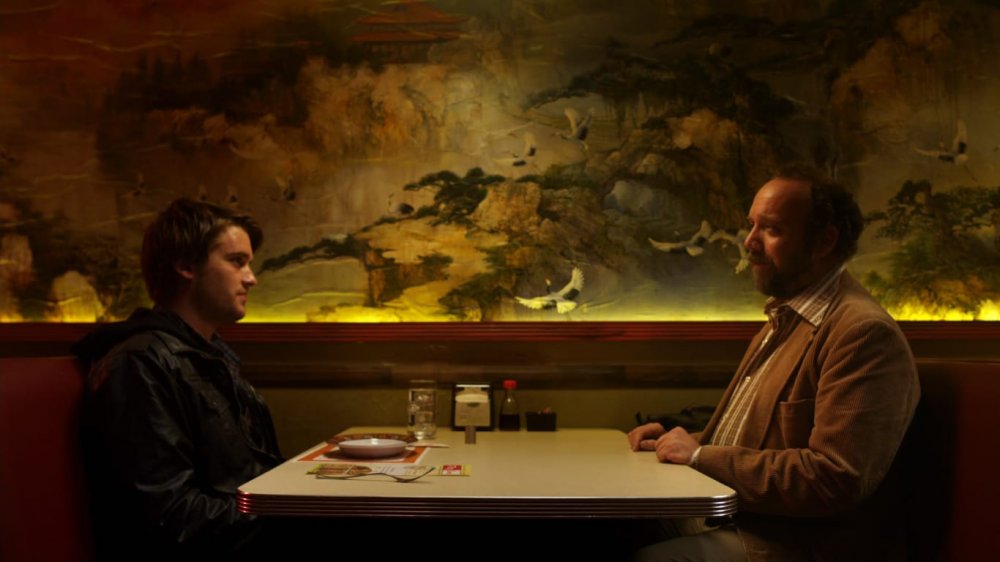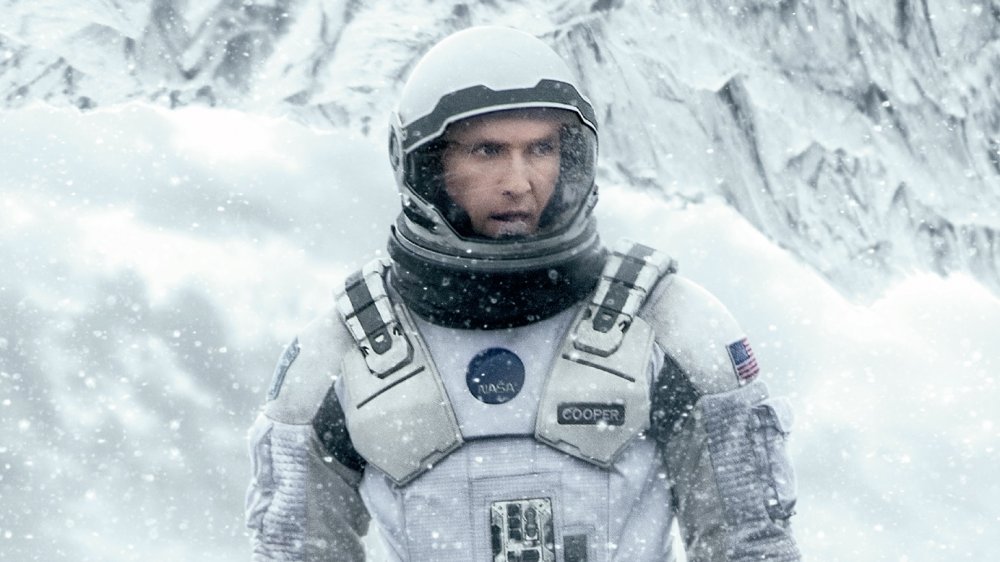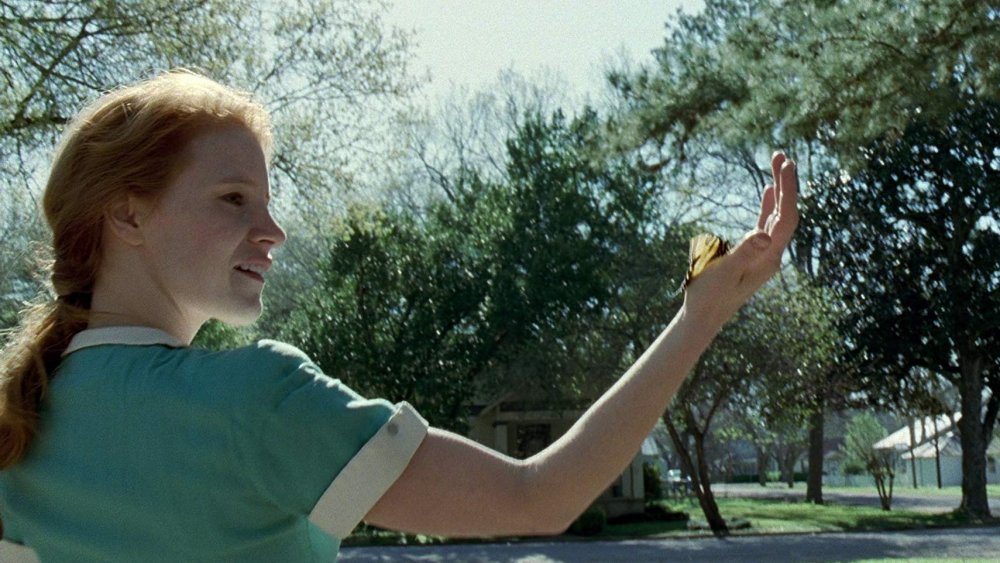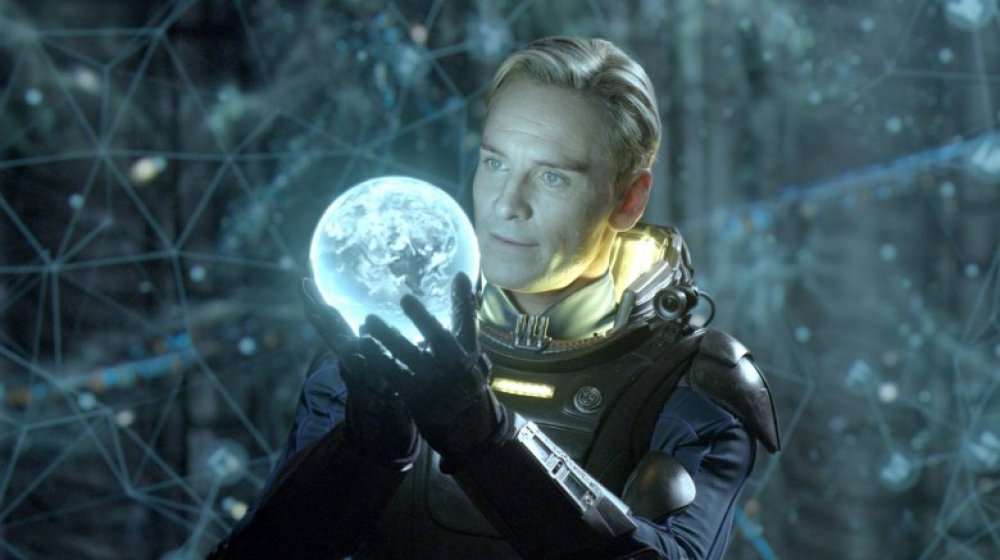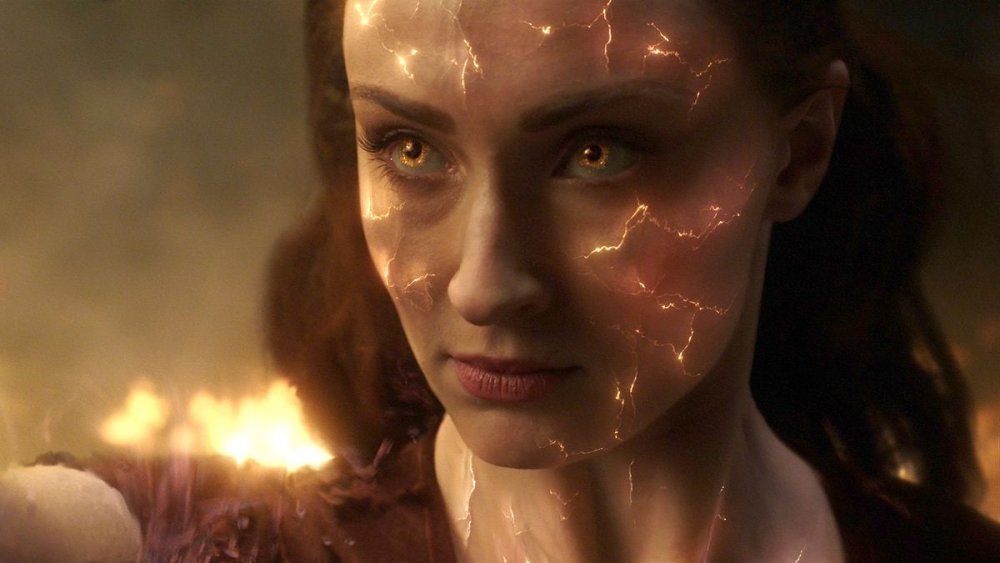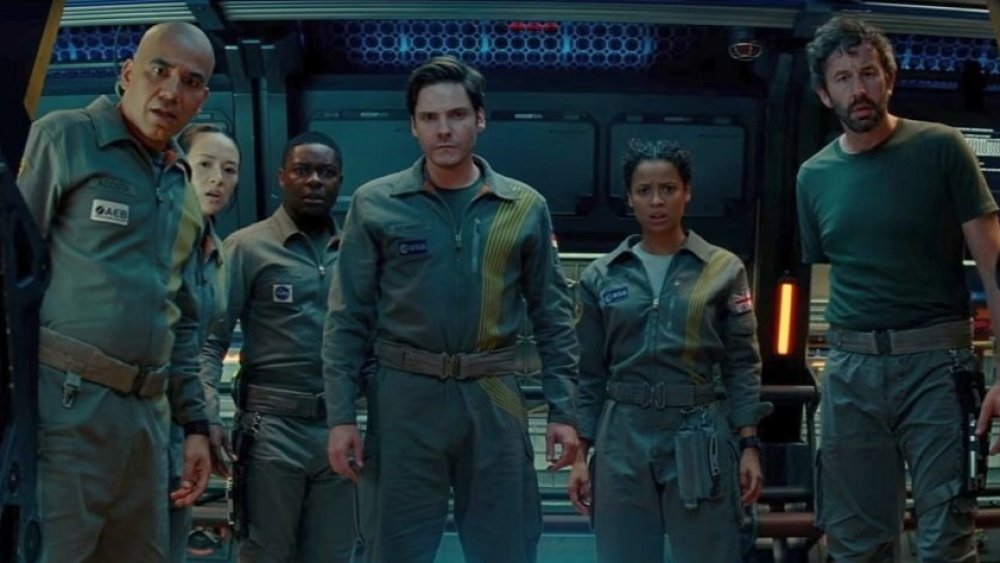The Most Baffling Movies Of The Past Decade
As film fans, it's important to look back on the 2010s and think on all of the time we spent in the movie theater, Milk Duds tumbling from our gaping mouths, going, "What just happened?"
Movies are hard, you guys. Acts one and two are one thing, but three? How much can we reasonably be expected to comprehend? We're only human. And to make matters worse, some filmmakers seem to have their hearts set on making our brains fold over on themselves like so much pumpernickel bread dough.
Still, if that's your thing, we've compiled a list of some of the mind-trippingest entries into the world of cinema from the last ten years. Call it an end-of-decade retrospective on all the times we, as a society, walked out of the theater and pretended we understood what had just happened so our friends wouldn't think we were dumb. Memories, man. From post-apocalyptic Westerns to sci-fi horror flicks, these are the most baffling movies of the past decade.
The Bad Batch is all sorts of weird
One of the most bizarre films of 2017, The Bad Batch didn't just fly under the radar. It did loop de loops under the radar until it crashed into a barn and exploded, and nobody noticed. Written and directed by Ana Lily Amirpour of A Girl Walks Home Alone at Night acclaim, it's a post-apocalyptic pile of weirdness with enough star power to stop a paparazzo dead in his tracks and, be honest, have you ever heard of it?
The synopsis reads like a Stefon sketch from Weekend Update: "This movie has everything. Golf carts. Raves. Dismemberments. Keanu Reeves?!" It starts out hot with the protagonist having her arm and leg chopped off by cannibals before escaping their compound on a skateboard, and then it gets more bizarre. Everything is a metaphor. Sometimes it's heavy handed. Sometimes it's ham-fisted. Sometimes hand-related idioms feel out of place because, again, the main character gets her limbs pruned pretty much out of the gate.
The Bad Batch stars up-and-comer Suki Waterhouse, as well as Jason Mamoa, Giovanni Ribisi, and some other recognizable faces that we won't spoil for you. And if you can leave a Post-It note somewhere explaining why they felt like they needed to do that to the rabbit at the end, we'd very much appreciate it.
Birdman is the most baffling 'superhero' movie ever made
Known by grumbling comic book nerds the world over as "probably as close as we're ever going to get to another Michael Keaton Batman movie," Birdman is an agonizingly truthful look at celebrity psychology that probably started out as an experiment in saving money by hiring like one drummer to do the score and then snowballed into an arthouse masterpiece. Writer/director Alejandro González Iñárritu pulls powerhouse performances out of a cast that includes Keaton, Emma Stone, Edward Norton, Zach Galifianakis, and Naomi Watts.
Birdman (or The Unexpected Virtue of Ignorance to its friends) follows flailing former movie star Riggan Thomson. Now decades removed from the superhero franchise that made him famous, he's either suffering a series of manic episodes as he tries to reclaim some semblance of his former glory, or he's slowly developing godlike superpowers. It's up to you, really, and so is the confusing ending, which some of us in the more pretentiously pedantic corners of the internet are still trying to get a bead on.
The Babadook is one of the creepiest and strangest films of the past decade
With its saltwater crocodiles, box jellyfish, and drop bears, it only makes sense that Australia would be the birthplace of the next generation of horror films. And yet audiences and critics were blindsided by Jennifer Kent's 2014 directorial debut, The Babadook, which is a deeply twisted and intimate look into the life of a suburban mother trying to cope with life after the loss of her husband.
And maybe that's what the Babadook itself represents. Within the film, it's presented as a shadowy demon on par with any big screen boogeyman you'd care to mention. As a metaphor, it could be read as plenty of things, like the ever-present gloom that hovers over a home that has recently suffered a loss. Or perhaps it could be depression, hopelessness, or instability. If Ridley Scott's aliens symbolized sexual assault and Freddy Krueger from Nightmare on Elm Street 2 was a heavy-handed representation of buried homosexual urges, the Babadook is ... what exactly? As movie monsters go, it's one of the most ambiguous in terms of its deeper meaning. Bless its gooey black heart.
Jupiter Ascending is the Wachowskis at their weirdest
Sometimes, you want to root for somebody, but they just make it so difficult. That's about as solid an introduction to the Wachowskis as you're probably ever going to get.
See, they came out of the public consciousness gate strong with The Matrix, a story about an office worker who gets pulled out of his simulated world to discover that he's a computer messiah with video game superpowers. On paper, that doesn't sound any more perplexing than the plot of 2015's Jupiter Ascending, the tale of a janitor who tries to sell her eggs so she can afford a telescope and then finds out she's a space messiah with ... bee superpowers. Among other things.
Other highlights include Channing Tatum playing a human-dog hybrid who had his wings removed in disgrace, so he now uses hoverboots in roughly every circumstance that crosses his path. Eddie Redmayne wears a lot of metal turtlenecks and speaks in the tones of a lightly sedated Voldemort with bronchitis. Sean Bean dies, as is his wont. The plot is convoluted and includes an interstellar real estate dispute. By the 45-minute mark, you'll feel like you've watched two movies already and desperately want either a nap, a whiskey, or a whiskey nap.
mother! is an incredibly messed up movie
There's a shortage of motion pictures out there capable of making their entire audience go, "What?" This is, however, not the case when scrolling through the list of Darren Aronofsky movies. There are plenty of entries to choose from in the last decade alone. Black Swan and Noah certainly spring to mind. But for the real crème de la crème, let's look at mother!, the 2017 art piece that had America remembering the word "bamboozled" and using it in sentences more often.
Front row center, you have Jennifer Lawrence as the titular mother, a young woman struggling to keep house for her husband, a recently post-Pirates 5 Javier Bardem. As the film progresses, Bardem's character, an acclaimed writer, attempts to overcome his creative slump by inviting over a dysfunctional family, then groups of increasingly destructive friends and admirers, and finally, the military. There's a lot to dissect, and it's not for the faint of heart, but in the end, it's apparently all about climate change, according to the director. Don't worry if you're lost, because we were too.
Cloud Atlas made some pretty baffling casting decisions
To hear the Wachowskis describe Cloud Atlas in the months leading up to its release, you'd think it was a loving homage/warmhearted ripoff of Darren Aronofsky's The Fountain, with characters who exist in multiple lives across time, finding each other as love conquers all, etc. Watching Cloud Atlas, you'd see it as more of a wink and a nod to the creative choices made by artists who'd recently overdosed on iowaska while striking themselves in the head with a small kettle bell. The plot itself? There's plenty to chew on there, with the aforementioned timey-wimey shenanigans at play and the necessary worldbuilding time allotted to most movies being spread thin across several fantastical landscapes.
And then there was the high-concept, actors-playing-multiple-roles decision. Throughout the film, performers transformed into characters hailing from different time periods and, in a move so woke it went all the way back around to problematic again, of different genders and ethnicities. It was probably supposed to be a statement on how we're all just people in the end, but that optimism lost some of its bite when Jim Sturgess and Hugo Weaving, in Star Trek-adjacent forehead makeup, were expected to look like Asian human beings and not just cartoon stereotypes from anti-Japanese World War II propaganda posters. Yeah, some might argue the movie is one you need to see before you die, but we're not so sure. Sorry, but sometimes the true-true hurts.
John Dies at the End was the trippiest movie of the past decade
There are a lot of people out there who would, with joy in their hearts and a light behind their eyes, explain to you in great detail what happens in John Dies At The End. They'll tell you everything, delving into the differences between the plot of David Wong's book and the film adaptation, the way that it was mislabeled by critics as an over-the-top "interesting failure," and how the themes run deeper and in more unexpected ways than the layman could possibly pick up on their first viewing.
That person isn't us, and we're still drooling out of our slack jaws trying to understand what writer/director Don Coscarelli released upon society back in 2012. There are moments of cohesion, punctuating long, run-on sentences made up of Nazi zombies, human transcendence, living needles, a drug called Soy Sauce, and of course, Paul Giamatti. There are demonic insects. There's an unreliable narrator. There's interdimensional travel and ghosts. The whole thing is sort of like the Chex Mix of storytelling. If you pick around the parts you don't like, it's great, but don't expect it to be 100 percent up your alley.
Interstellar is Christopher Nolan's most thoughtful film
Where would we be without Christopher Nolan movies? Superheroes might never have gone gritty. People would never have started adding "-ception" to the ends of words and then expecting people to laugh. Warner Bros. wouldn't be constantly embroiled in a cold war with itself trying to out-creepy its most recent Joker iteration. All joking aside, Nolan knows how to make an effective blockbuster, but they're not all as clear-cut as The Dark Knight.
For example, when Nolan's follow up to Inception was first announced, audiences weren't sure what to expect. From the teaser trailer, it looked like it had to do with outer space being invaded by Matthew McConaughey and maybe, just maybe, some corn. What we ended up with was Interstellar, a visually stunning, thrill-a-minute journey into the world of Einstein's general relativity equations as explained by some of Hollywood's finest accents. It's a beautiful movie on two conditions: You have to be able to keep up with it, and you can't be certified science fiction party pooper Neil deGrasse Tyson, whose Twitter rants on the subject of the film will not go gentle into that good night.
Tree of Life tackles the entirety of existence
Let's get this out of the way up front. Terrence Malick movies? They're not for everyone. For one thing, they're generally few and far between. The reclusive filmmaker famously went MIA in the 1970s after the release of Days of Heaven and didn't show up again for 20 years. While he was on hiatus, Malick started work on a motion picture called Q, an exploration of the origins of life. The project never saw the light of day, but its bones wound up in 2011's The Tree of Life, which expanded on the initial concept of Q by focusing, instead, on everything.
What do we mean by "everything?" Pretty much just that. Creation, the nature of God, biblical interpretations, mid-20th century Texas, birth, discovery, death, and rebirth are all included in the mix. It's, well, a lot.
Critics seemed to agree, but they couldn't come to a consensus on whether or not the movie was any good. Audiences had the same trouble, and Tree of Life managed to attract both applause and boos when it premiered at Cannes, where it ended up winning the coveted Palme d'Or. David Lynch said that the picture wasn't his "cup of tea," and it takes a special kind of weird to illicit that reaction from the maker of Eraserhead.
Prometheus is the strangest entry in the Alien franchise
By 2012, fans of Gothic genital imagery and extraterrestrial slaughter-fest beatdowns alike were positively chomping at the bit for a high quality Alien movie. It had been 26 years since Aliens came out, and the pickings had been slim for Xenomorph enthusiasts ever since. Alien 3 was a departure from fans' expectations, Alien Resurrection was Joss Whedon's personal attack on the concept of fun, and the Alien vs. Predator movies had all the entertainment value of watching Uwe Boll try to eat a Resident Evil DVD.
But then, for a moment, there was hope, as OG Alien director Ridley Scott quietly helmed a new project. Details were slim, and intrigue was high. All signs pointed to more bug hunts on the horizon. Only Prometheus wound up being a difficult film to watch. Messianic murder albinos and the occasional death spore through the ear were poor substitutes for the skull-faced monstrosities that the crowd had come to expect. Throw in a whole lot of opining about the nature of creation, and you've got yourself the biggest budget student movie ever created by a philosophy major taking a film class for fun.
And no, if you were wondering, Alien: Covenant didn't clear anything up. We just saved you two bucks at Redbox.
The X-Men movies were all over the place
In a long-ago time called the late 1990s, superhero movies were sitting in Hollywood's time-out chair after a series of busts. Batman and Robin had just killed its franchise. A new Superman couldn't get off the ground. The highest-grossing comic book movie of the decade was Men in Black, which nobody knew was a comic book movie.
Then along came X-Men, a revolution in skintight black pleather. In 2000, Bryan Singer's straight-faced, camp-free take on superheroes grabbed studios' attention, with box office returns more than tripling its relatively modest $75 million budget. Fox didn't just have a hit, they had the foundation on which to build a multi-billion dollar franchise.
And build they did. And they kept building. Then X-Men: The Last Stand came out and they decided to keep building on top of that, despite some serious issues with its support structure. Then they made X-Men Origins: Wolverine, initially planned as the first in a series of solo character prequel stories, but nobody liked it, so they said, "Just pave over it and hope nobody notices."
In 2019, nearly two decades and about a dozen soft reboots after the original movie, Fox released Dark Phoenix, the last picture in a series that had given up on continuity two Hugh Jackman contract renewals earlier. By that point, the timeline was a Gordian Knot made out of greased-up spaghetti.
The Cloverfield Paradox was the past decade's biggest head-scratcher
The general public had a lot of questions when Netflix sprung The Cloverfield Paradox on them during the 2018 Super Bowl. Where did the sequel come from? How did it appear, almost miraculously, so soon after 10 Cloverfield Lane? What could they expect from what was, up to that point, a deliciously experimental franchise that seemed dead set on doling out droplets of worldbuilding just a little bit at a time?
And then they saw The Cloverfield Paradox and had more questions, like, "What the heck was that?" and, "Is it possible to get a refund on my ticket if the movie was never in theaters?" The movie seemed to throw continuity to the wind, feeling at times like a prequel leading up to the events of the first film and, at other times, like a direct-to-video epileptic seizure. In the end, even a coffee-fueled Pepe Silvia-style dissection of the story couldn't make it line up with the events of the previous two films, but it flaunted that kaiju at us in the final frames regardless, implying that the story we'd just witnessed dovetailed gracefully into the plot of Cloverfield.
Actually, it turns out there was a good reason for all of this. The Cloverfield Paradox was initially created as an unconnected movie called The God Particle and wound up tied into the larger franchise in post-production. Still, if you want to slowly go mad, try putting together a cohesive timeline for the franchise and get ready to foam at the mouth.
